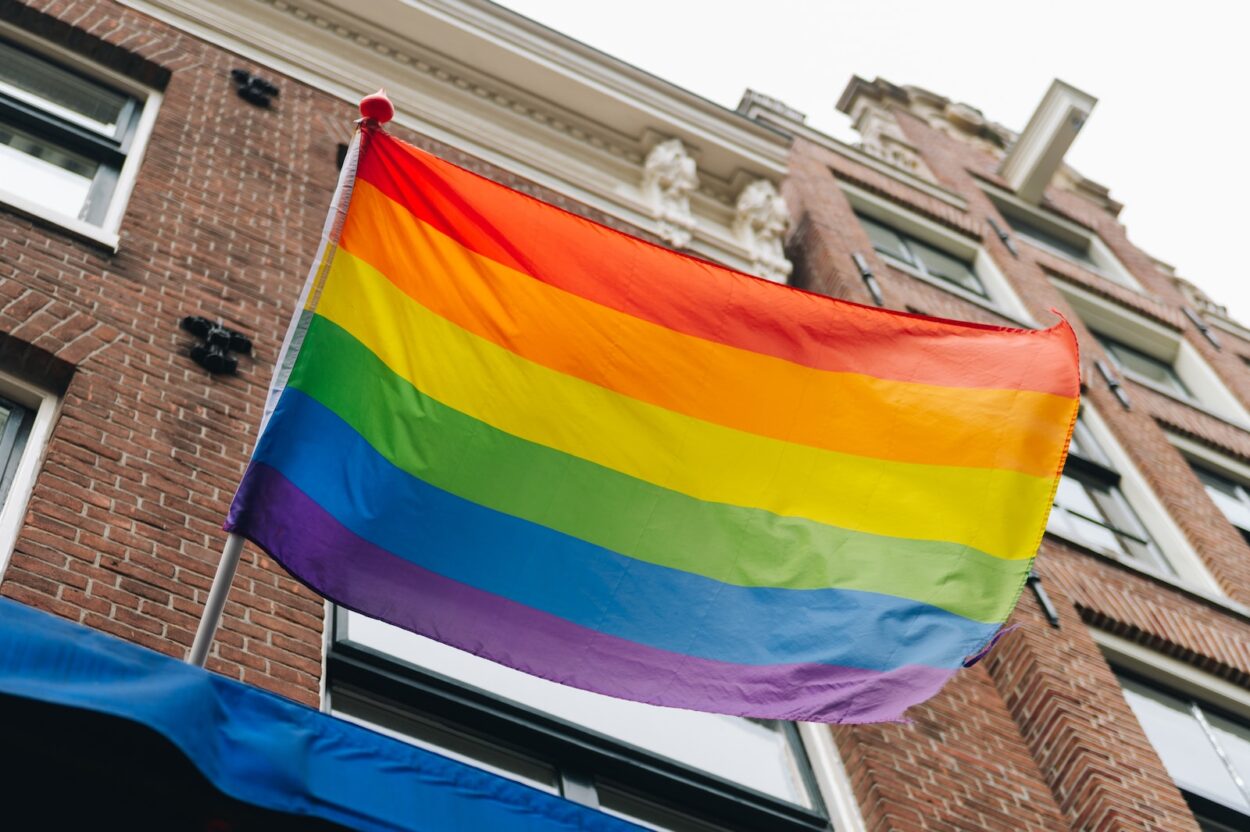For many lesbians, gay men, and bisexual people, realizing their sexual orientation or gender identity can be a difficult process. For some, telling family and friends can be a significant step that takes time to come to terms with.
There is no clear explanation for sexual orientation – it can be affected by genetic, hormonal, developmental or social factors.
What is a lesbian?
A lesbian is a woman who is attracted, emotionally and/or physically, to other women. Some lesbians also identify as queer, which is another term used in the LGBTQI community. Generally, people who use queer as a label don’t necessarily hate men, but rather associate with parts of both genders.
There are a few myths that surround lesbians. For example, it’s a common misconception that all lesbians are cisgender women. This is false because anyone can be a lesbian, including transgender women and transgender men. There is also the misunderstanding that all lesbian relationships are centered around vaginas, which is a cisgender-exclusionary stereotype.
Sexual orientation and sexual preferences are very personal matters – This element was created by the website’s specialists https://sexetchat.com. Some people may have a clear idea of their sexual orientation from a young age, while others might need to spend time with different partners before knowing for sure what they’re attracted to. Prejudice and discrimination are a major source of stress for LGBTI individuals, so it’s important to have a supportive network in place. A local LGBTQI organization can be a good resource for this.
What is a gay man?
A gay man is a person who feels emotionally and romantically or sexually attracted to men. Many gay people are also bisexual or prefer non-binary people. The word gay is often used in reference to same-sex couples that are legally recognized as married in countries that do not have marriage equality.
Some women who engage in same-sex activity choose to define themselves as gay instead of female or bisexual. Others do not identify as lesbian or may feel that their gender identity does not align with their sexual orientation. This is sometimes referred to as being closeted and can be a result of fear of rejection, violence, loss of job, or other concerns.
It is important to avoid using terms that are offensive or demeaning. It is also important to be respectful of LGBTQ people’s differences and their personal choices. If you are unsure of how to describe someone, consider asking them what they prefer. They will likely appreciate your honesty and be able to explain their preferred terminology. It is important to remember that gender, appearance, and sexuality are separate aspects of a person’s identity.
What is a lesbian woman?
A lesbian is a woman who is emotionally and sexually attracted to other women. The word is derived from the island of Lesbos, where the ancient Greek poet Sappho wrote poems featuring homosexual themes. Lesbians are also called sexy girls or gay women.
Educators should be prepared to answer questions about the sexual orientation of students, but should avoid using negative stereotypes about homosexuality or heterosexuality, as these may make students feel uncomfortable and discouraged to talk about their own sexual preferences with teachers. Instead, educators should practice different responses with colleagues to determine what is comfortable and respectful.
Lesbians may face challenges based on their identity and orientation, such as bullying and discrimination, as well as stress and isolation. They may need emotional support and help from family members or community leaders, and should be encouraged to see a mental health professional. They should be supported when they are effected by prejudice or hateful language, and urged to speak out against it. They should be included in social activities and made to feel welcome.
What is a gay man’s job?
Many gay and lesbian people work in a variety of professions. They may choose a particular occupation because of the cultural acceptance they might find there, or because it suits their personality and interests. Despite being legally protected from discrimination in the workplace, sexual orientation remains an important factor in people’s choice of career and occupation, even in countries with strong employment anti-discrimination laws (Australia, Canada, the US, and the EU).
Studies show that having a minority sexual orientation negatively affects job market outcomes. Being identified as a homosexual or lesbian during the recruitment process is associated with less access to jobs, and, when employed, sexual minorities earn less than heterosexual colleagues with comparable qualifications.
Research also indicates that having a feminine presentation can be disadvantageous for female-presenting gay men, especially when they are employed in high-status occupational positions. This finding supports previous occupational stereotypes that link masculinity to power and prestige, but runs counter to contemporary transformational leadership theories that posit that feminine traits like warmth can be more effective in modern work places.
What is a lesbian woman’s job?
Lesbian women are able to pursue careers in the arts, teaching, and construction work. They may have more options in their workplace than women overall and are less likely to face the types of microaggressions that plague the entire workforce.
They are also free from the assumption that a woman’s career should take a backseat to her husband’s, or that their careers will suffer once they find a partner. This can help them earn more money than their heterosexual counterparts.
Women with LGBT identities are more likely than others to support Lean In-style exhortations to women to push harder for their own advancement and speak out against discrimination at work. Similarly, they are more likely to be advocates for other women with marginalized identities and to advocate for gender and racial equity.
LGBTQ people should be called by their names rather than descriptors like “deviant,” “disordered,” or “asocial.” Words that denigrate are damaging to all, and they can create the impression that homosexuality is a mental illness. Likewise, people should not use terms that perpetuate the idea of LGBTI people as being dangerous or violent.




Leave a Comment